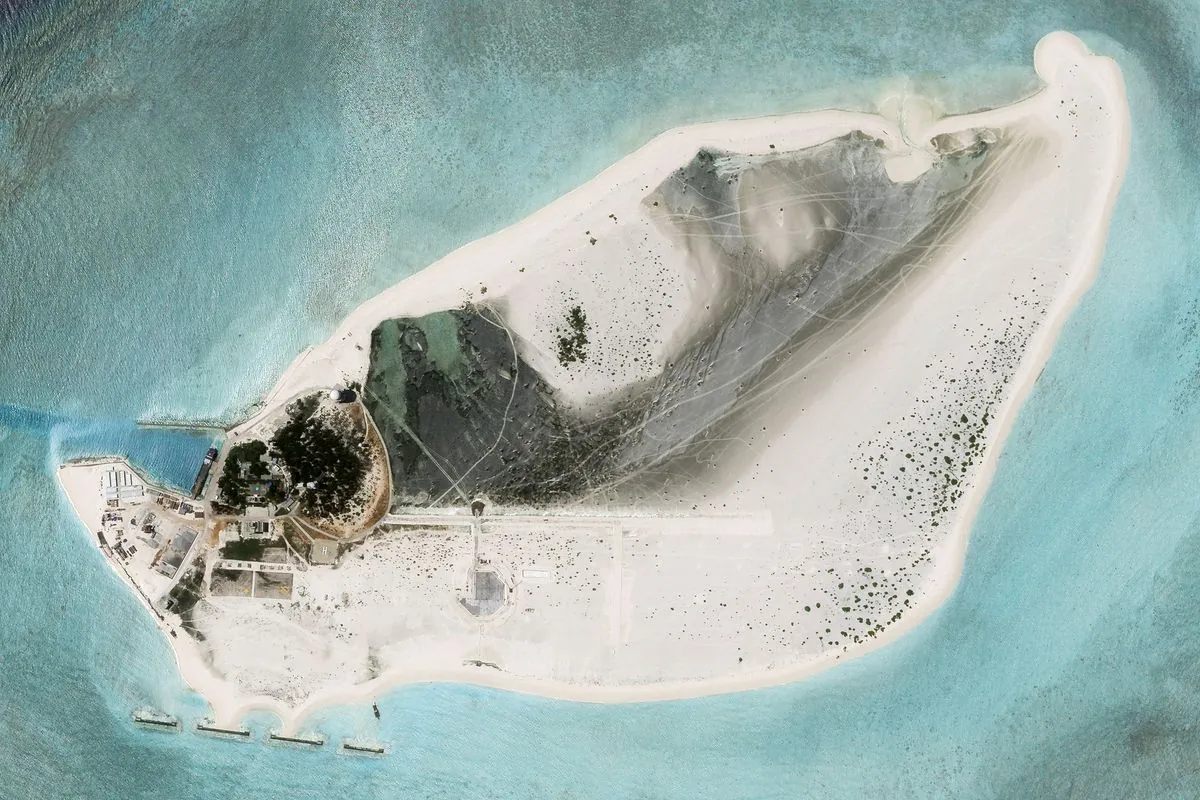The Philippines and China have reached a provisional agreement regarding resupply missions to the Second Thomas Shoal in the South China Sea, a site of frequent confrontations between the two nations. This arrangement, focusing solely on the Second Thomas Shoal, may be subject to future evaluation, according to a Philippine foreign ministry official.
Ma. Theresa Lazaro, Foreign Affairs Undersecretary, stated that the understanding does not compromise the Philippines' position on the South China Sea dispute. She emphasized that the agreement could be reassessed if necessary, though the timing of such a review remains undetermined.
Philippine Foreign Minister Enrique Manalo affirmed the country's commitment to honoring the provisional understanding, expressing expectations for China to reciprocate. This agreement facilitated an unimpeded Philippine resupply mission on July 27, 2024.
However, tensions have escalated in the Scarborough Shoal, another contested area in the South China Sea. On August 8, 2024, the Philippine military reported that Chinese aircraft dropped flares in the path of its patrol plane, an action strongly condemned by the Philippine Navy.
Rear Admiral Roy Vincent Trinidad described the Chinese air force's behavior as "coercive, aggressive, and deceptive," emphasizing that such conduct contradicts international law and increases the risk of unintended incidents.
The Scarborough Shoal, a prime fishing area with a protective lagoon, lies within the Philippines' exclusive economic zone but has been under Chinese control for over a decade. This ongoing dispute highlights the complex nature of territorial claims in the South China Sea.
"The Philippines will honor the provisional understanding and expects China to do the same."
It's important to note that the South China Sea disputes involve multiple countries and have significant geopolitical implications. The region is not only rich in natural resources, including oil and gas reserves, but also serves as a critical shipping route with trillions of dollars in annual trade passing through its waters.
In 2016, the Permanent Court of Arbitration ruled in favor of the Philippines, rejecting China's historical claims in the South China Sea. Despite this ruling, tensions persist, and the international community continues to monitor the situation closely.
The provisional agreement between the Philippines and China represents a delicate balance in managing the complex dynamics of the South China Sea. As both nations navigate these challenging waters, the potential for future reviews of the arrangement underscores the ongoing nature of these territorial disputes and the need for continued diplomatic efforts to maintain regional stability.
